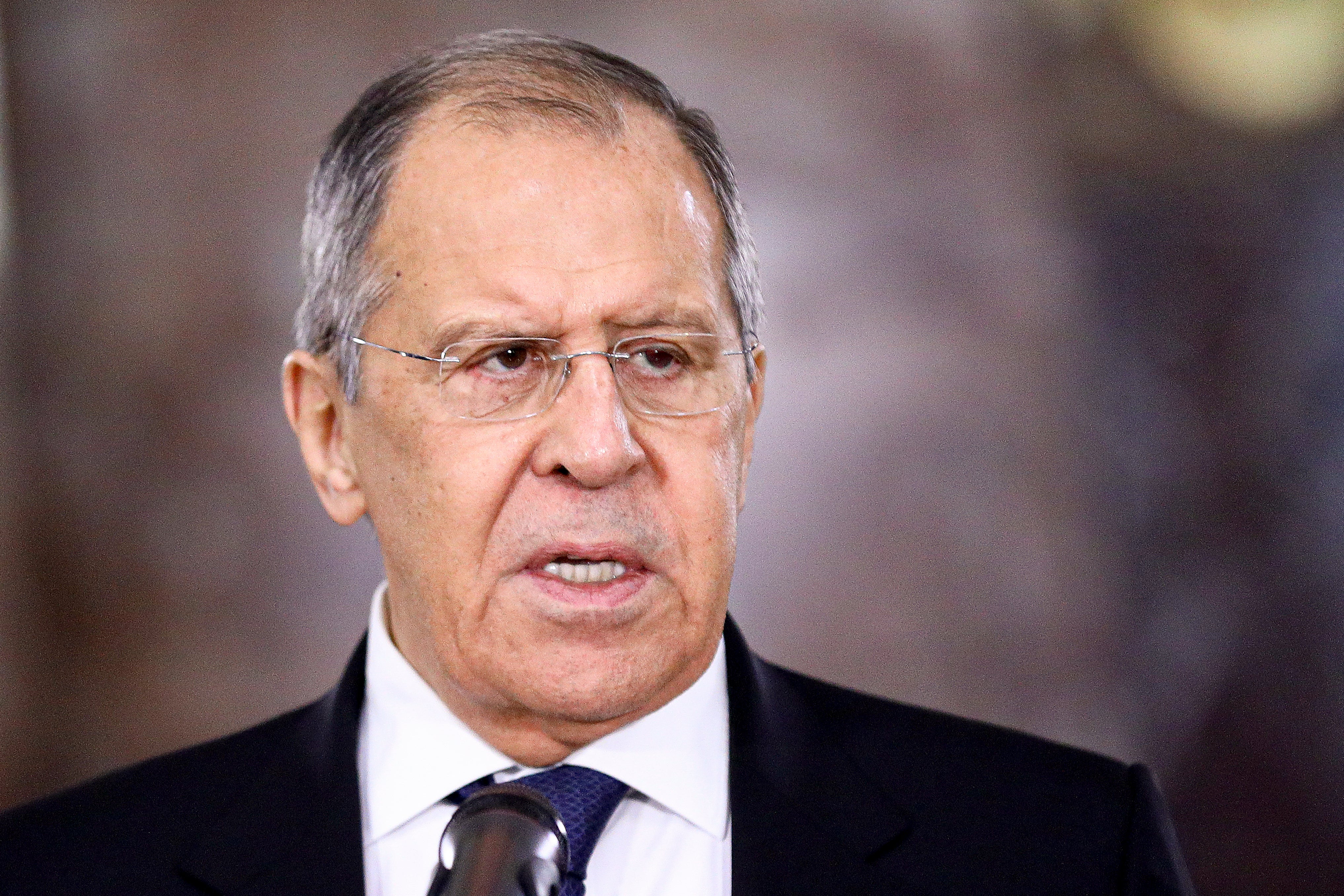Russia says it's open to better ties with EU despite chill
Russia’s top diplomat has blamed the European Union for a freeze in ties but argues that Moscow remains ready to mend relations if it hears positive signals from the EU

Your support helps us to tell the story
From reproductive rights to climate change to Big Tech, The Independent is on the ground when the story is developing. Whether it's investigating the financials of Elon Musk's pro-Trump PAC or producing our latest documentary, 'The A Word', which shines a light on the American women fighting for reproductive rights, we know how important it is to parse out the facts from the messaging.
At such a critical moment in US history, we need reporters on the ground. Your donation allows us to keep sending journalists to speak to both sides of the story.
The Independent is trusted by Americans across the entire political spectrum. And unlike many other quality news outlets, we choose not to lock Americans out of our reporting and analysis with paywalls. We believe quality journalism should be available to everyone, paid for by those who can afford it.
Your support makes all the difference.Russia s top diplomat blamed the European Union Monday for a freeze in ties but argued that Moscow remains ready to mend relations if it hears positive signals from the bloc.
Foreign Minister Sergey Lavrov said after talks in St. Petersburg with his Finnish counterpart, Pekka Haavisto, that “if the EU decides that it's necessary to restore relations, we will be ready for it."
Lavrov's statement followed his warning last week that Moscow was ready for a split with the 27-nation bloc if Brussels moves to introduce new crippling sanctions that would hurt the Russian economy.
Russian-EU ties, which sank to post-Cold War lows after Moscow's 2014 annexation of Ukraine's Crimea and support for separatist insurgents in eastern Ukraine, took a new blow recently over the arrest of Russian opposition leader Alexei Navalny The most prominent political foe of President Vladimir Putin was arrested Jan. 17 upon his return from Germany, where he spent five months recuperating from nerve agent poisoning he blamed on the Kremlin. Russian authorities have denied the allegations.
Russia has rejected U.S. and EU criticism of Navalny's arrest and imprisonment, and a sweeping crackdown on protests urging his release, as meddling in its internal affairs. Just as EU foreign policy chief Josep Borrell was visiting Russia earlier this month, Moscow announced the expulsion of diplomats from Germany, Poland and Sweden for attending protests in support of Navalny. The three EU nations expelled a Russian diplomat each in a quid pro quo response.
Haavisto emphasized the EU's strong criticism of the Russian action, noting that the EU diplomats were fulfilling their duty while observing the protests. He reaffirmed the EU's demand for Navalny's release and the bloc's criticism of the crackdown on demonstrations.
Lavrov said that economic relations with the EU have been hurt by sanctions and political contacts have been limited to sporadic exchanges of views on international crises. He added that while Russian-EU relations have stalled, Moscow has maintained strong bilateral contacts with individual EU members despite the damage inflicted by the sanctions.